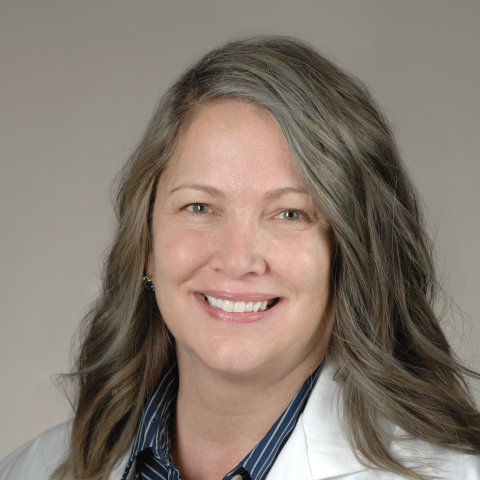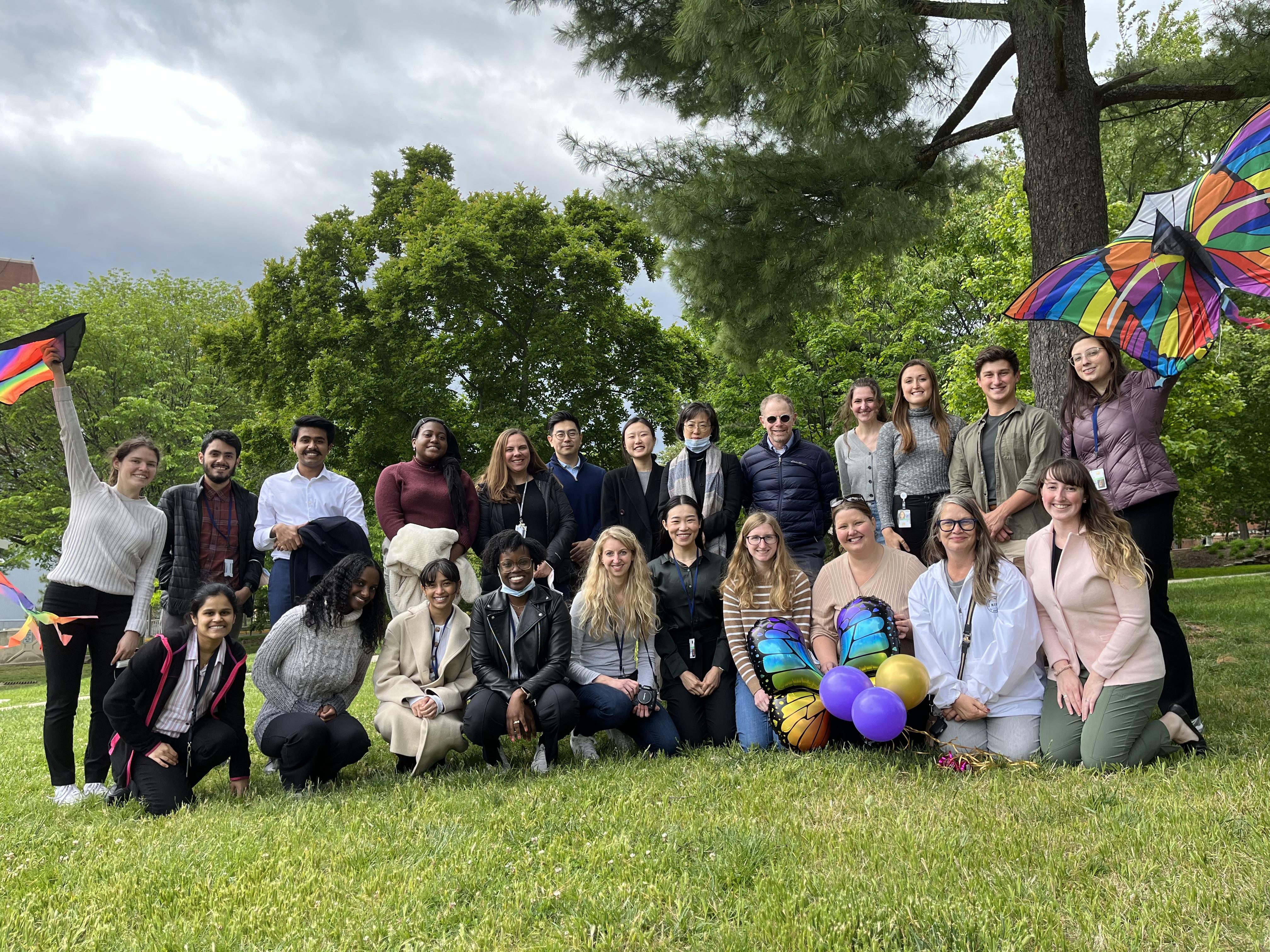
Terri S. Armstrong, Ph.D., ANP-BC, FAAN, FAANP
Terri S. Armstrong, Ph.D., ANP-BC, FAAN, FAANP, has more than 30 years of experience caring for people with brain and spine tumors. As a trained clinician and scientist, she has spent the last eight years leading the Patient Outcomes Research Program in the Neuro-Oncology Branch (NOB). She is also the associate director of the Office of Patient-Centered Outcomes and served as the NOB’s deputy branch chief from 2018 to 2024. After decades of dedicated patient care and research, she is announcing her retirement.
Armstrong earned her Master of Oncology and Adult Nurse Practitioner Postmaster’s Certificate from The Ohio State University. She went on to earn a Ph.D. from the University of Texas Health Science Center at Houston (UTHealth Houston) School of Nursing. She has held appointments at the University of Pittsburgh, Emory University, The University of Texas MD Anderson Cancer Center and UTHealth Houston. At the latter, she was awarded the John S. Dunn Distinguished Professorship in Oncology Nursing in 2012, followed by tenure.
In 2016, Armstrong was recruited to join the NOB by her mentor Mark Gilbert, M.D. Together, she and Gilbert launched NCI-CONNECT (Comprehensive Oncology Network Evaluating Rare CNS Tumors), a Cancer Moonshot℠-funded program that advances care and treatment for rare central nervous system (CNS) cancers.
Armstrong has also served as an advocate for healthcare equity and women's professional development. Prior to arriving at CCR, she led the Committee on the Status of Women at UTHealth Houston. She is currently the chair of the CCR Clinical Trial Diversity Committee and previously chaired the CCR Women Scientist Advisors Committee. She has also mentored numerous postbaccalaureate fellows, graduate students, postdoctoral fellows, medical students, nurses and junior faculty within the intramural program and through academic and international collaborations.
Armstrong has earned many awards, including one NIH Director’s Award, four NCI Director’s Awards, and UTHealth Houston’s Distinguished Alumni Award. In addition, she was named a Fellow of the American Academy of Nursing and the American Academy of Nurse Practitioners. She also received the Society for Neuro-Oncology (SNO) Award for Excellence in Quality of Life Research. She served as SNO’s vice president from 2015 to 2017, served in elected Board of Directors positions and created and chaired several committees in the organization. Most recently, she was the lead NCI representative to the White House’s Cancer Cabinet Committee on Caregiver and Cancer Survivorship. Throughout her career, Armstrong has published over 200 peer-reviewed publications. In the last four years alone, she oversaw and served as Patient-Reported Outcomes Chair in 25 clinical trials.
In the Q&A that follows, Armstrong reflects on her successful career and the future of the neuro-oncology field.
What are some exciting frontiers in patient outcomes research?
We’ve only just started to understand how the biology of a CNS tumor affects the disease and its progression. For example, researchers on my team have been examining the biomarkers that are associated with cognitive dysfunction. This will help us understand who’s at risk of developing certain symptoms and find ways to target the underlying causes.
Another important research area is understanding how social determinants of health — non-medical factors — impact how patients feel and function. We need to find ways to help people in disadvantaged areas access better resources and care because these are variables that affect treatment outcomes. My team’s goal is to see the whole person, not just their tumor.
What scientific achievements are you most proud of?
My team has done a lot of important work investigating the effects of sleep disturbance on brain tumor patients. This project began with an observation in the clinic: We noticed that cranial radiation treatment led to patients feeling fatigued and needing to nap in a stereotypical pattern after radiation. Joining CCR allowed me to delve into the genetic underpinnings of this phenomenon — and how these might differ by sex. We took what we learned in our preclinical models and started a clinical trial using smart wearable devices to monitor patients’ sleep and activity patterns.
I’ve also spent my career advocating for incorporating patient-reported outcomes (such as self-assessments and other questionnaires) into clinical studies. Hearing the patient’s voice is critical to understanding their lived experiences. That’s one reason why I developed an observational study called the Natural History Study (NHS), which has amassed over 1,200 participants since 2016. The data and patient-reported outcomes we’ve collected through the NHS have led to breakthrough findings, including identifying a new tumor entity known as an MYCN amplified ependymoma. I also led a working group with experts from NCI, the U.S. Food and Drug Administration, the European Medicines Agency and others to identify core patient outcomes that should be measured in clinical studies. My team then incorporated these core symptom assessments into the NHS to validate them.
What has been the most surprising aspect of your career journey?
I’ve learned so much from getting to collaborate with both clinicians and laboratory researchers. Bringing together people who think differently helps you do better work and advance treatment options faster. Those collaborations have been some of the most surprising and enriching experiences of my career.
I’ve also learned a great deal from 32 years of working with patients. I meet these folks in the most trying parts of their lives. And yet, they face their diagnoses with such courage. They’ve taught me some important lessons, such as living in the present.
What advice would you give someone entering the field of neuro-oncology?
There’s so much opportunity to make a difference in people's lives in this field, whether you're a clinical care provider, researcher, or basic scientist. Being in neuro-oncology is unique because you’re dealing with both a cancer and a neurologic disease. There are so many different questions you can explore. Whatever your passion is, you’ll have the ability to pursue it.
There is also a lot of joy and personal growth that comes from interacting with patients. I have a drawer full of cards, photos, and drawings from patients and their families. It’s an important reminder of just how strong people are when faced with life’s challenges — and how, as neuro-oncology researchers and providers, we can help them persevere.
Dr. Terri Armstrong will retire on September 29, 2024.
